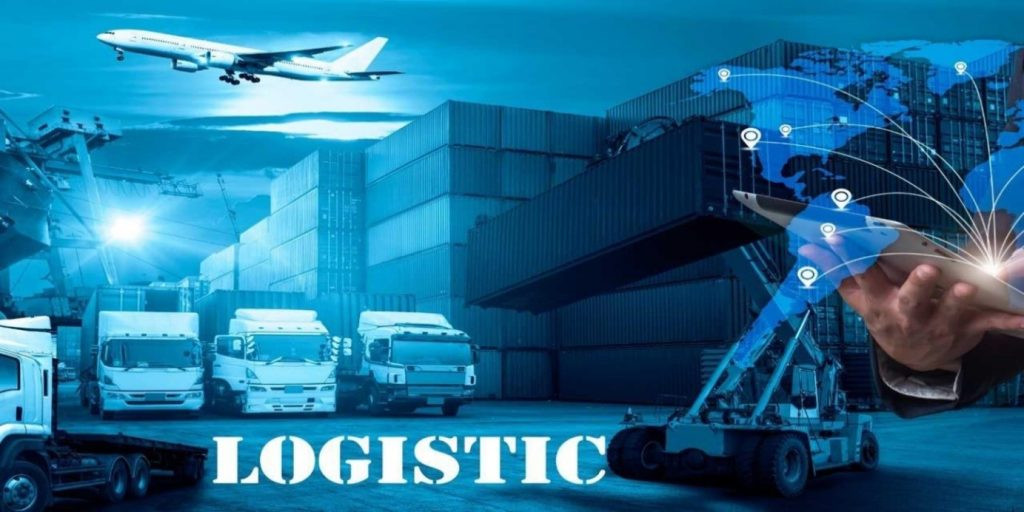Minh Ngoc • 06/05/2023 07:18
The logistics market in Vietnam is experiencing impressive growth in emerging markets, benefiting from the supply chain shift and optimistic economic growth. As a result, Vietnam has the opportunity to become the logistics hub of the region.

Impressive Growth Rate
According to Agility's annual ranking for 2023, Vietnam has made it into the top 10 emerging logistics markets globally and ranks 4th in Southeast Asia.
The Compound Annual Growth Rate (CAGR) for the period 2022-2027 for Vietnam's logistics market is projected to reach 5.5%. Vietnam is currently at the forefront among ASEAN nations in terms of the number of licensed logistics service businesses by the US Federal Maritime Commission (FMC). The quantity and quality of logistics services have been enhanced, contributing to an increasingly high proportion of goods and services exports relative to GDP, rising from 72.9% in 2015 to 93.3% in 2021. The sector's average annual growth rate ranges from 14-16%, with the quantity and quality of logistics services improving. This significant contribution is reflected in Vietnam's total import and export turnover, which reached $730.2 billion USD in 2022, a 9.1% increase compared to the same period in 2021. These achievements are noteworthy given the backdrop of global and domestic challenges arising from the COVID-19 pandemic, as well as economic and political uncertainties on a global scale.
In terms of domestic logistics opportunities, Vietnam is ranked 16th, improving by one rank compared to 2022 with a score of 5.02. Based on business conditions and technology readiness indicators, Vietnam is ranked 19th and 15th, respectively. In terms of international logistics opportunities, Vietnam currently leads Southeast Asia and ranks 4th globally with a score of 6.03.
At the recent seminar "Digital Transformation for Building a Modern and Sustainable Logistics Industry" organized by the Ministry of Industry and Trade, Nguyen Trieu Quang, the North Operations Director of Lazada Logistics Vietnam, emphasized that Vietnam's logistics market is rich in potential and is undergoing robust development.
Logistics is one of Vietnam's fastest-growing and most stable sectors, with an average annual growth rate ranging from 14-16% and a scale of $40-42 billion USD per year. According to expert evaluations, Vietnam is benefiting from the supply chain shift and the optimistic economic growth. As a result, Vietnam is expected to become Asia's logistics hub in the near future.
Dinh Hoai Nam, the Business Development Director of SLP Vietnam, also noted that in the age of digital technology, modern warehouses are replacing traditional warehouses as a necessity in the development of the logistics industry due to increasing customer demands for shorter transportation times and higher service quality. Modern warehouses are equipped with advanced technologies such as automation and comprehensive monitoring systems, which improve the speed and efficiency of the transportation process. This is a crucial factor that aids the development of the logistics industry and meets the increasing demands of customers.
The present development of the logistics sector necessitates adaptive solutions for warehouses to accommodate emerging models like e-commerce and last-mile delivery. Automated equipment is also integrated to enhance operational efficiency, including sorting machines and high-level rack systems to optimize utilization. With these advantages, modern warehouses are gradually replacing traditional storage systems in the logistics sector.
New technologies like IoT, artificial intelligence, and automation have elevated the efficiency and accuracy of warehouse operations. Smart warehouse systems provide detailed information about storage processes, transportation, and goods management, optimizing all of these activities.
According to Nguyen Trieu Quang, in the context of the global focus on sustainable development, logistics enterprises also need to establish a comprehensive and sustainable ecosystem to seize the opportunities of e-commerce, enhance the customer experience, apply technology, standardize processes to optimize operational performance, and develop sustainable green logistics.
Cre: Financial Market Magazine




